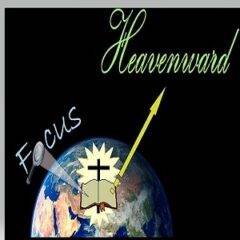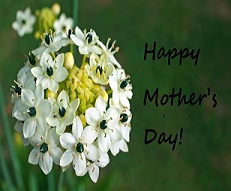Every Christmas season, scenes of Jesus’ birth is depicted all around – in store front windows, in picture books on store shelves, and on ornaments for the tree. The nativity is printed on napkins, fabric and canvas suitable for framing. Little eyes look with wonder at the familiar scene and sing songs of a ‘Silent Night’ so long ago. What do we know of the characters represented?
What do we know of Mary?
Her husband was Joseph, whose father was Jacob. She gave birth to Jesus Christ, the Savior of the world. His birth has been celebrated world-wide for over two thousand years!
Matthew 1:16 And to Jacob was born Joseph the husband of Mary, by whom was born Jesus, who is called Christ.
Mary lived in the city of Nazareth which was set among the hills of Galilee. It seems that the people who lived in Nazareth were scorned upon (ref. John1:46), so it may not have been a popular place to live. But, something quite extraordinary happened to an unsuspecting teen according to the Bible.
Luke 1:26-30 Now in the sixth month the angel Gabriel was sent from God to a city in Galilee, called Nazareth, 27 to a virgin engaged to a man whose name was Joseph, of the descendants of David; and the virgin's name was Mary. 28 And coming in, he said to her, "Hail, favored one! The Lord [is] with you." 29 But she was greatly troubled at [this] statement, and kept pondering what kind of salutation this might be. 30 And the angel said to her, "Do not be afraid, Mary; for you have found favor with God.
Note, the salutation given to Mary by the angel Gabriel. She is favored by God! This comes from the Greek word charitoo meaning to give grace or special honor. Mary is accepted by God as His own. According to the account above, she was actually disturbed by this greeting and wondered what was meant.
Think for a moment how strange this encounter might have been! It was not an everyday occurrence to have an angel of the Lord visit you. She did not expect God to give her a special honor which leads us to believe she was humble. In this unusual meeting, it was most likely difficult for her to even know what to think or say. How would you respond?
Picture this young girl, living in the town of Nazareth set in hills made of limestone, trying to wrap her head around this greeting. You can almost see her shaking her head in disbelief, wondering if she was dreaming or hallucinating. Then, the real news is delivered.
Luke 1:31 "And behold, you will conceive in your womb, and bear a son, and you shall name Him Jesus.
Mary was a virgin when she conceived Jesus. This fact, in itself, makes no sense in our human knowledge and understanding. Yet, it is true. It is highly doubtful that Mary was able to comprehend how she could conceive and carry a child without having an intimate relationship with a man. Read her response:
Luke 1:34 And Mary said to the angel, "How can this be, since I am a virgin?"
Hmmmm, you must have the wrong person, right!? She was not even married yet! The entire context of this scenario seems to be out of place, at least in human terms.
Luke 1:35 And the angel answered and said to her, "The Holy Spirit will come upon you, and the power of the Most High will overshadow you; and for that reason the holy offspring shall be called the Son of God.
Consider the news Mary had received, how her life was turned upside down. One day she was anticipating her marriage to Joseph, the next she was wondering how she would convince him of what had happened and hope he would somehow accept this unbelievable change in their plans.
Mary was probably not oblivious to the laws and the consequence of what others might think. Yet, her response to what she understands as impossible, unbelievable, and in all likelihood puts her in a position of wrong accusation and death, certainly proves she is God’s favored, full of His grace.
Luke 1:38 And Mary said, "Behold, the bondslave of the Lord; be it done to me according to your word." And the angel departed from her.
There are two thoughts from her response that cannot escape our notice. Faith and obedience. She believed what the angel said would happen, and she refers to herself as the Lord’s bondslave, in complete acceptance of His use of her life. What we do not read is an account of Mary thinking that perhaps God could find someone else to use, that this might prove to be quite difficult and it was going to upset the plans she had for her future. Instead, her faith in God’s will for her life shines forth. Her obedience to God’s plan is steadfast. It is remarkable, worthy of our notice.
Matthew 1:18 Now the birth of Jesus Christ was as follows. When His mother Mary had been betrothed to Joseph, before they came together she was found to be with child by the Holy Spirit.
The word used in the KJV for betrothed, is espoused. According to Jewish custom, a man and woman could be espoused or promised in agreement to one another ten to twelve months before they were married. This time was much like what we consider being engaged today. However, there is a difference. In the Jewish religion the betrothal agreement was legal and binding on both sides, at the time of engagement. Our cultural practice today sees an engagement as non-binding and without any legalities involved. No matter if a marriage ceremony takes place or not, or if unfaithfulness is practiced, there is little consequence. In Mary’s case, unfaithfulness during the time of betrothal was considered adultery and punished exactly the same way.
Leviticus 20:10 'If [there is] a man who commits adultery with another man's wife, one who commits adultery with his friend's wife, the adulterer and the adulteress shall surely be put to death.
John 8:3-5a And the scribes and the Pharisees *brought a woman caught in adultery, and having set her in the midst, 4 they *said to Him, "Teacher, this woman has been caught in adultery, in the very act. 5a "Now in the Law Moses commanded us to stone such women; …"
Was Mary afraid of what might happen? We do not read she was, but she was human and must have had feelings and fears and thoughts. It would be fair to think she felt a bit uncertain and uneasy how this plan was going to come to fruition. We do know Mary at least suffered the misunderstanding of those who loved her.
Read the commentary below on Matthew 1:18.
“She was found with child. Her situation was the most distressing and humiliating that can be conceived. Nothing but the fullest consciousness of her own integrity, and the strongest confidence in God, could have supported her in such trying circumstances, where her reputation, her honour, and her life were at stake. What conversation passed between her and Joseph, on this discovery, we are not informed; but the issue proves that it was not satisfactory to him: nor could he resolve to consider her as his wife, till God had sent his angel to bear the most unequivocal testimony to the virgin's innocence. His whole conduct, on this occasion, was exceedingly benevolent and humane. He might at once have taken the advantage of the law, and had her stoned to death.” Adam Clarke’s Commentary
Matthew 1:19-20 And Joseph her husband, being a righteous man, and not wanting to disgrace her, desired to put her away secretly. 20 But when he had considered this, behold, an angel of the Lord appeared to him in a dream, saying, "Joseph, son of David, do not be afraid to take Mary as your wife; for that which has been conceived in her is of the Holy Spirit.
Think again of the consequence of what Mary’s condition looked like to those around her, this time recorded for us in Deuteronomy.
Deuteronomy 22:23-24a "If there is a girl who is a virgin engaged to a man, and [another] man finds her in the city and lies with her, 24a then you shall bring them both out to the gate of that city and you shall stone them to death ...”
Consider. Mary’s age. She was probably much younger than what we might think. According to several different studies, the average age for women to get married nowadays is about twenty-five years old. Four generations ago, it was not so unusual to be married in your very early twenties. Today, that would be considered fairly young! Rewind to the time and culture of our subject. It was common then for young women to be espoused or betrothed in their early teens, when it was physically possible to conceive children. This was culturally not only accepted but expected. Taking this into thought, it is fair to assume that Mary may have been little more than a teenager.
Imagine for a moment the teenage girls you know and try to comprehend the full weight of responsibility placed on Mary at this young age. It is difficult to believe and absolutely inspiring to read her response to the news she was given and all it may have conjured up in her mind.
As we approach the season of celebrating Jesus’ birth, I pray our faith and obedience to God’s will is lived out in a manner that directs honor to Him. His plans are for our good and His glory. God will use each of us right where we are placed. We may not always understand His plan (I often do not understand), sometimes God may require that we are uncomfortable, and He may ask some to suffer. God may change the plans we thought we would follow. In times of unexpected turns we have been given an example to follow through the exemplary life of a teenage girl. We are not to worship Mary, God alone is worthy of praise. But, we can esteem her life as one used by God and look at His amazing ways with hearts of love and eyes of wonder.




